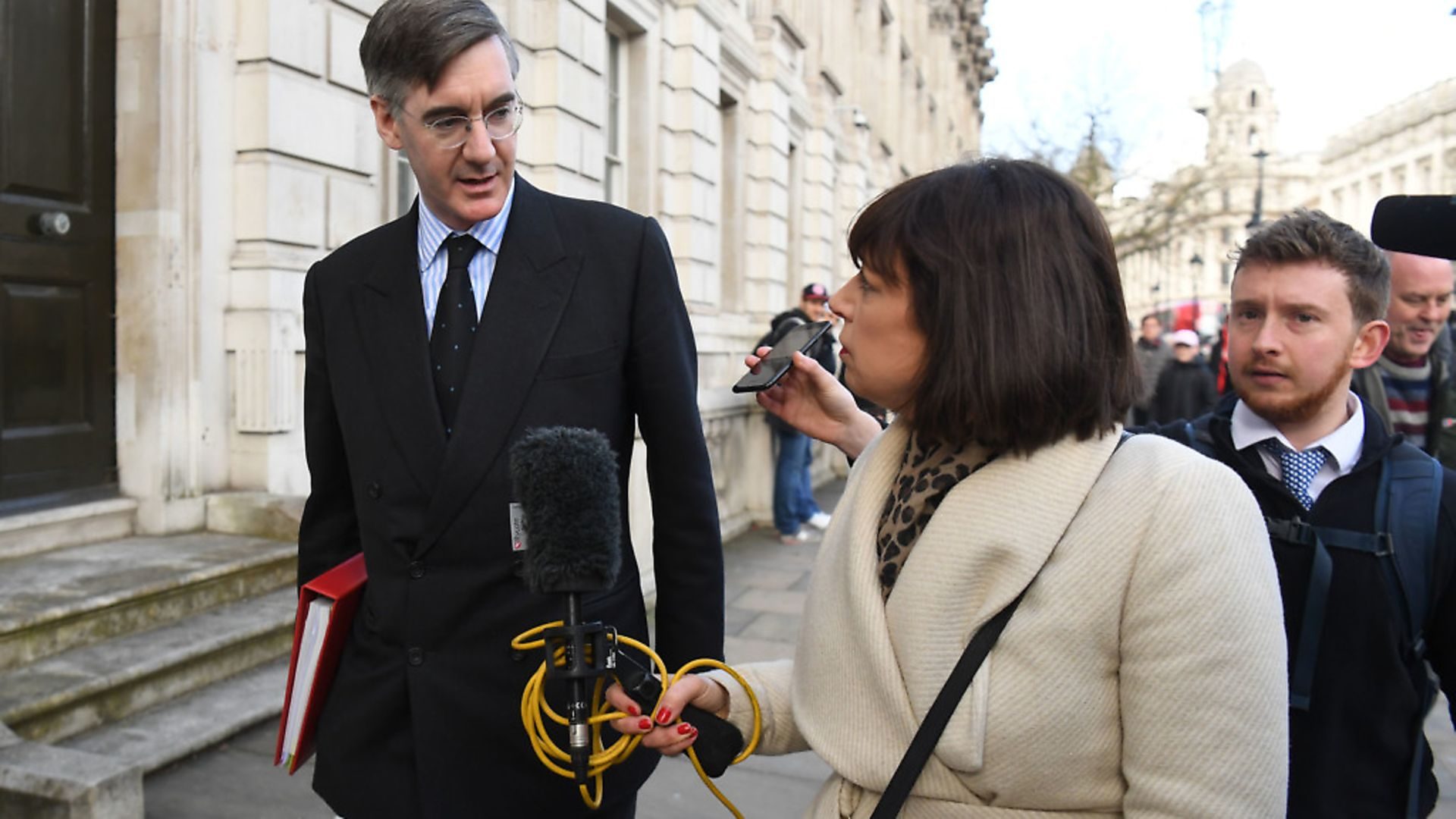In a That Mitchell And Webb Look sketch from 13 years ago, David Mitchell and Robert Webb parodied the increasing tendency of TV news presenters to encourage viewers to share their views, irrespective of expertise.
“You may not know anything about the issue, but I bet you reckon something,” says Mitchell’s character. “So why not tell us what you reckon? Let us enjoy the full majesty of your uninformed ad hoc reckon.”
Westminster’s king of the uninformed ad hoc reckon is Jacob Rees-Mogg. The Conservative MP’s public profile, wildly out of proportion to anything achieved in 12 years of public life, is his ability to give political reporters “a line”. Rees-Mogg has never been one to demur that he doesn’t know enough about the subject, or would have to give it more thought. His brand has been built on providing journalists with a punchy quote with the ease, for them, of withdrawing cash from a bank machine.
Which is fine when you are, as Rees-Mogg was for his first seven years in Parliament, an idiosyncratic backbencher with a sniff for the media limelight. It’s almost fine when you’re the leader of the House and the non-public-facing nature of the role means you (rarely) get the chance to utter your unconventional musings to the wider world. But it’s a ticking timebomb when you’re suddenly handed a portfolio meaning that your views, when publicly shared, are – not unreasonably – seen to be those of Her Majesty’s Government more widely.
Rees-Mogg last week endorsed a report by the right-wing Institute of Economic Affairs think-tank which said that the UK might cut red tape by unilaterally accepting testing on industrial goods by the EU and other countries. There was “no point” in the UK repeating tests that other countries did to an acceptable standard, it said. Rees-Mogg told The Times on Saturday: “In my view there’s no point in us repeating things that other organisations and countries do to a perfectly competent standard.”
Except that Rees-Mogg, in an effort by Boris Johnson to placate restless Brexiteer backbenchers, is now ‘Brexit Opportunities Minister’. He is literally the public face of the government’s post-Brexit regulations policy. And he was completely freelancing.
His apparent acceptance that the UK should unilaterally recognise testing by the EU and other countries to avoid duplicating costs for business had left industry groups perplexed, the Financial Times reported.
One senior industry executive told the paper such a policy, while attractive to many companies seeking to avoid Brexit red tape, would have “driven a coach and horses” through three years of government policy, which has insisted on the UK creating its own copycat standards for industrial goods and chemicals.
Industry needs certainty. Although during the Brexit trade negotiations,it lobbied hard for the UK to strike an agreement with the EU to mutually recognise standards such as the CE safety and quality mark, the EU ultimately refused to cut such a deal on terms acceptable to the UK’s negotiating team. And even as late as last week officials in Kwasi Kwarteng’s Department for Business, Energy and Industrial Strategy (BEIS) officials were doubling down on the double-test approach.
Hence calls to Number 10 to see if, in the space of one interview, the government’s entire policy had changed. It had not. “Our position has not changed,” said a spokesperson. The minister was just “articulating his broad ambitions” for his new role. Or to put it less politely, freelancing (or even less politely, displaying a staggering level of ignorance about his new portfolio).
This will continue. Had Rees-Mogg not unilaterally declared a government u-turn over its entire post-Brexit standards regulation policy, journalists may have paid more attention to his declaration in the same interview that the civil service needed to shed an entirely arbitrary 65,000 jobs (based on what? Who knows?). Or even his suggestion – worth one line in his Times interview – that Ofcom – the internet, telecoms and media regulator which Johnson wasted considerable political capital in unsuccessfully procuring Paul Dacre the chairmanship of – could be scrapped. (Ironically at the same time Rees-Mogg’s fellow freelancer, Nadine Dorries, was musing about giving it the power to decide which jokes comedians could tell on Netflix).
Ministers knew Rees-Mogg was a liability. He was unceremoniously removed from all Conservative broadcast duties during the 2019 general election campaign after saying it would have been “common sense” to flee the Grenfell Tower fire, ignoring fire brigade advice.
But even then he was speaking as a relatively junior part of government. Now, in his first proper public-facing role as a member of Johnson’s cabinet, ministers and officials can expect to spend many more Mondays “clarifying comments” as their king of the uninformed ad hoc reckon continues to have his say.











